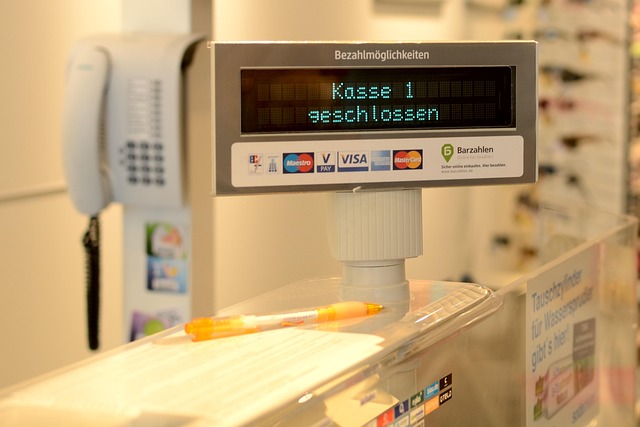What Cash Apps Work in Mexico in 2025: An In-Depth Guide to Digital Payments and Cryptocurrency Platforms
Author: Jameson Richman Expert
Published On: 2025-08-18
Prepared by Jameson Richman and our team of experts with over a decade of experience in cryptocurrency and digital asset analysis. Learn more about us.
Understanding which cash apps and digital payment solutions are operational, reliable, and compliant in Mexico in 2025 is essential for residents, expatriates, and travelers aiming for seamless, secure, and innovative financial transactions. As Mexico’s economy continues its digital transformation, the fintech landscape has become increasingly sophisticated, integrating traditional payment methods with blockchain technology, cryptocurrencies, and decentralized finance (DeFi). This comprehensive guide delves into the most trusted, versatile, and innovative platforms available today, providing detailed insights into their core features, security mechanisms, regulatory framework, and how they are shaping financial inclusion, economic resilience, and technological progress in Mexico.

Introduction to the Digital Payment Ecosystem in Mexico
Over the last decade, Mexico has undergone a significant financial revolution fueled by technological adoption, regulatory reforms, and a societal shift toward cashless economies. As of 2024, over 75% of Mexicans own smartphones, and a growing proportion actively engage with mobile banking, digital wallets, QR code payments, and contactless transactions. This evolution aligns with national initiatives such as the “Agenda Digital 2025” and the “Financial Inclusion Strategy,” targeting unbanked and underbanked populations, especially in rural regions.
Simultaneously, the Central Bank of Mexico (Banxico) is pioneering efforts to digitalize the monetary system through the development of the digital peso (CBDC). The digital peso aims to act as a secure, state-backed currency that complements existing digital wallets and cryptocurrencies, facilitating faster, safer, and more transparent transactions while supporting monetary policy implementation and financial stability. Additionally, major local banks like BBVA Mexico, Santander, and Banorte have embraced open banking standards, promoting interoperability among financial institutions and third-party fintech apps. International platforms such as PayPal, Wise, and Revolut have tailored their services to Mexican regulations, fostering a dynamic ecosystem where traditional payments, remittances, crypto trading, and DeFi activities coexist—driving economic participation, innovation, and financial resilience.
Top Cash Apps Supporting Transactions in Mexico in 2025
The effectiveness of these platforms hinges on several key factors: cross-border compatibility, transaction costs, security protocols, regulatory compliance, and currency support. Here, we provide an in-depth look at each leading platform, emphasizing their technological architecture, security features, regulatory adherence, and suitability for diverse user needs—from everyday money transfers to sophisticated investment and crypto trading strategies.
1. PayPal
PayPal remains a dominant force in digital payments worldwide and continues to be integral to Mexico’s financial landscape in 2025. Its services encompass online shopping, peer-to-peer transfers, and merchant payments, with tight integrations into popular local e-commerce platforms such as MercadoLibre and Amazon Mexico. Users can link Mexican bank accounts, credit, and debit cards, enabling transactions in MXN, USD, EUR, and other currencies, supported by real-time currency conversion and hedging tools.
Innovations like “Pay in 4”—offering interest-free installment payments—are tailored to the preferences of Mexican consumers, who value flexible purchasing options. PayPal’s extensive merchant network, invoicing capabilities for small businesses, and freelancer integration empower entrepreneurs to expand their reach. Security remains a priority through multi-factor authentication, AI-driven fraud detection, end-to-end encryption, and compliance with Mexico’s data privacy standards such as the Federal Law on Protection of Personal Data (LFPDP). The platform’s recent expansion into crypto services—including buying, holding, and selling digital assets—positions PayPal as a comprehensive financial hub in Mexico’s evolving ecosystem.
2. Wise (formerly TransferWise)
Wise has revolutionized cross-border remittances and international banking with its transparent fee structure and mid-market exchange rates—often 3-5 times better than traditional banks. Its “Wise Account” (multi-currency borderless account) allows Mexican users, including expatriates, students, and remote workers, to hold and manage multiple currencies, such as MXN, USD, EUR, GBP, and more, with near real-time exchange rates and low transfer fees.
Security measures are comprehensive, including bank-grade encryption, multi-factor authentication, AML/KYC compliance, and regular audits. Wise’s infrastructure aligns with Mexican regulatory standards, ensuring seamless legal and financial operation. Its low-cost, rapid transfers make it ideal for families sending remittances, freelancers invoicing international clients, or small businesses engaging in cross-border trade.
Integration with local banking systems and payment platforms (e.g., SPEI, OXXO, and local mobile wallets) enhances usability, allowing direct bank transfers and mobile wallet interoperability. This integration amplifies the reach and convenience of Wise’s services, supporting Mexico’s digital economy and fostering financial inclusion.
3. Revolut
Since its entry into the Mexican market in 2024, Revolut has rapidly established itself as a comprehensive digital banking and financial management platform. Its multi-currency accounts support MXN and other currencies, leveraging interbank FX rates—among the most competitive in the industry—for international transfers and currency exchanges. Its ecosystem encompasses cryptocurrency trading (Bitcoin, Ethereum, and others), savings vaults, budgeting tools, and crypto-backed debit cards, making it a versatile platform for daily expenses, investments, and wealth management.
Security features include biometric login, instant transaction notifications, disposable virtual cards for online purchases, and cold storage for cryptocurrencies. Additional benefits include fee-free ATM withdrawals up to a specified limit, seamless linking with local bank accounts via IBANs, and multi-layered fraud detection systems. Revolut also emphasizes financial literacy through educational content and personalized insights, making it an ideal platform for digital nomads, expatriates, and users seeking holistic financial management in 2025.
4. Binance
Binance remains Mexico’s leading cryptocurrency exchange, facilitating spot trading, staking, savings, and DeFi activities. Its fiat gateway allows Mexican users to purchase cryptocurrencies such as Bitcoin, Ethereum, and stablecoins directly with MXN via bank transfers, credit/debit cards, and local payment platforms like SPEI and OXXO. This accessibility accelerates crypto adoption in Mexico’s digital economy.
Binance’s extensive ecosystem supports Binance Smart Chain (BSC), NFT marketplaces, and decentralized finance (DeFi) protocols, catering to both new entrants and seasoned traders. Security protocols include multi-factor authentication, cold storage, and insurance funds, ensuring asset safety. Regulatory compliance with Mexican authorities, including registration with local authorities and adherence to AML/KYC standards, ensures a legal and secure trading environment. Binance’s fiat services foster broader participation in crypto payments, cross-border remittances, and DeFi investments, bridging traditional finance with blockchain innovations.
5. MEXC
MEXC has gained popularity for its extensive support of diverse digital assets, including numerous altcoins, DeFi tokens, and NFTs. Its user-friendly interface, competitive trading fees, and deep liquidity pools attract both novices and professional traders. The platform supports fiat deposits and withdrawals in MXN via bank transfer, SPEI, and local payment solutions, easing Mexican users into the crypto ecosystem.
MEXC emphasizes regulatory compliance through AML/KYC procedures, transparency, and security protocols like multi-signature wallets and cold storage. It offers staking, margin trading, and yield farming opportunities with a focus on community engagement, educational resources, and referral programs, fostering broader participation and financial literacy in Mexico’s crypto space.
6. Bitget
Bitget specializes in derivatives, spot trading, and staking services, emphasizing advanced features like leverage, copy trading, and risk management tools—all appealing to active traders and institutional participants. Its security infrastructure includes multi-signature wallets, cold storage, and third-party audits, ensuring user assets are well protected.
Community growth is driven via referral programs and liquidity incentives. Its derivatives platform enables hedging and speculative strategies, enriching Mexico’s crypto trading landscape and providing tools for more sophisticated financial strategies.
7. Bybit
Bybit, renowned for derivatives trading, has expanded its offerings to include spot trading, staking, and passive income features. Its intuitive interface, combined with advanced security measures like multi-factor authentication and cold wallets, makes it accessible for both experienced traders and newcomers. Bybit's educational initiatives foster community growth and help users understand complex trading strategies and DeFi participation, encouraging broader engagement in crypto investments within Mexico.
How These Apps Drive Financial Inclusion in Mexico
These platforms are key enablers in reducing financial disparities by providing accessible, affordable, and secure digital financial services tailored for Mexico’s diverse socio-economic landscape. They empower unbanked and underbanked populations—particularly in rural and marginalized urban areas—by leveraging mobile technology, multilingual user interfaces, and local currency support. Crypto and DeFi platforms like Binance, MEXC, Bitget, and Bybit introduce innovative financial instruments such as yield farming, tokenized assets, decentralized lending, and liquidity pools—extending economic participation beyond traditional banking systems.
Small businesses, freelancers, and entrepreneurs benefit from streamlined payment solutions, digital invoicing, and access to capital markets. Crypto solutions provide new income streams and investment avenues, fostering economic resilience, social equity, and financial literacy. These tools are instrumental in building a more inclusive economy by bridging gaps in access and fostering broad participation in Mexico’s digital financial revolution.

Security, Regulatory Framework, and Future Outlook for Digital Payments in Mexico
Security remains a cornerstone of the digital financial ecosystem. Leading apps employ multi-factor authentication, biometric verification, end-to-end encryption, cold storage, and third-party security audits. As of 2025, the regulatory landscape is advancing rapidly, with the CNBV (National Banking and Securities Commission) and Banxico establishing frameworks for crypto activities, including licensing, AML/KYC standards, consumer protection, and digital asset classification.
Experts foresee blockchain technologies—via NFC contactless payments, QR code transactions, and DeFi protocols—becoming integral to daily routines. The imminent launch of the digital peso (CBDC) is expected to reinforce trust, transparency, and efficiency, potentially integrating with existing digital wallets and platforms to create a unified, secure, and versatile financial infrastructure. The integration of traditional banking, digital currencies, and DeFi is anticipated to foster an inclusive, resilient economy capable of adapting to future challenges and innovations.
Conclusion
By 2025, Mexico’s digital financial ecosystem boasts a diverse array of tools—ranging from established platforms like PayPal and Wise to innovative crypto gateways such as Binance, MEXC, Bitget, and Bybit. These platforms enable a broad spectrum of financial activities, including everyday transactions, remittances, crypto investments, DeFi participation, and NFT trading. Staying informed about security best practices, regulatory developments, and emerging technological innovations will be vital for users seeking to maximize benefits and safeguard their assets. Embracing this multifaceted ecosystem not only enhances individual financial resilience but also propels broader economic inclusion, technological progress, and sustainable development in Mexico’s society.